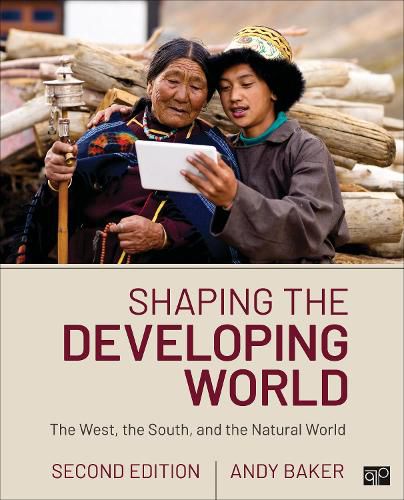Readings Newsletter
Become a Readings Member to make your shopping experience even easier.
Sign in or sign up for free!
You’re not far away from qualifying for FREE standard shipping within Australia
You’ve qualified for FREE standard shipping within Australia
The cart is loading…






Why are some countries rich and others poor?
Colonialism, globalization, bad government, gender inequality, geography, and environmental degradation are just some of the potential answers to this complex question. Using a threefold framework of the West, the South, and the natural world, Shaping the Developing World provides a logical and intuitive structure for categorizing and evaluating the causes of underdevelopment. This interdisciplinary book also describes the social, political, and economic aspects of development and is relevant to students in political science, international studies, geography, sociology, economics, gender studies, and anthropology.
The Second Edition has been updated to include the most recent development statistics and to incorporate new research on topics like climate change, democratization, religion and prosperity, the resource curse, and more. This second edition also contains expanded discussions of gender, financial inclusion, crime and police killings, and the Middle East, including the Syrian Civil War.
$9.00 standard shipping within Australia
FREE standard shipping within Australia for orders over $100.00
Express & International shipping calculated at checkout
Why are some countries rich and others poor?
Colonialism, globalization, bad government, gender inequality, geography, and environmental degradation are just some of the potential answers to this complex question. Using a threefold framework of the West, the South, and the natural world, Shaping the Developing World provides a logical and intuitive structure for categorizing and evaluating the causes of underdevelopment. This interdisciplinary book also describes the social, political, and economic aspects of development and is relevant to students in political science, international studies, geography, sociology, economics, gender studies, and anthropology.
The Second Edition has been updated to include the most recent development statistics and to incorporate new research on topics like climate change, democratization, religion and prosperity, the resource curse, and more. This second edition also contains expanded discussions of gender, financial inclusion, crime and police killings, and the Middle East, including the Syrian Civil War.